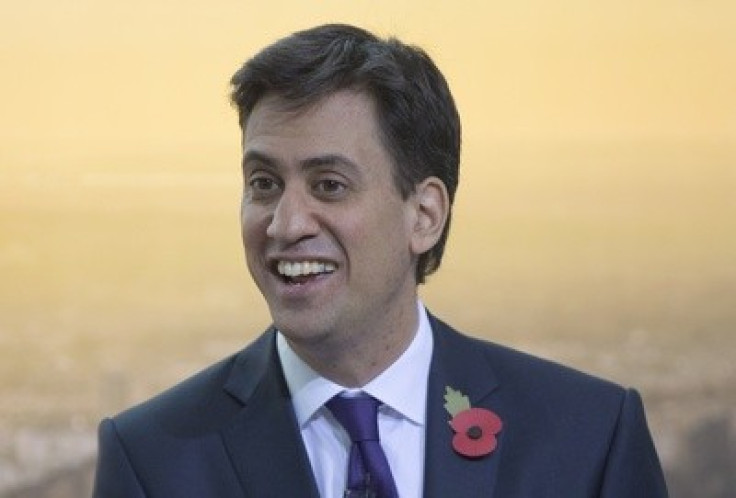Miliband Targets Payday Lender Ads to Keep Political Momentum

With the same predictability as torrential rain on bonfire night, the initial boost won by the parties during their autumn conferences has drained away and British politics has returned to roughly where it was before the rallies. But this time there has been one major exception.
It is not the opinion polls, which are pretty much where they were before the conferences, with the Tories hovering around the 33% mark and Labour 39%, according to the BBC's poll of polls. Other polls offer different basic figures but the trend is the same, Labour is ahead but not by enough to end election anxiety.
It is not the leaders, whose positions also have not dramatically changed, with David Cameron more popular than his party and Ed Miliband less popular than Cameron or Labour.
Neither is it the big issue that dominates the current political scene and will continue to do so right through until the 2015 election campaign - the economy, stupid.
The major exception, the thing that has changed and which has, as a result, transformed the background to all those other elements, is momentum. And it is the Labour leader who has it and is holding onto it, despite fears Miliband would fail to follow through on his conference speech.
Sensitive to the fact that his attacks on the big energy companies have done their job but are now producing diminishing returns, Miliband has turned onto the payday loans companies with the announcement that he would ban them from advertising during children's TV programmes.
"As a father of two young boys, I know how influenced they can be by what they see and I don't want payday lenders taking advantage of the cost of living crisis and targeting children in this country," he said.
That comment came after the creator of the MoneySavingExpert.com website, Martin Lewis, claimed lenders were "grooming" youngsters as future customers and Miliband followed through with another keynote speech, this time targeting the "Wonga" economy.
Economic numbers
What lies at the core of Miliband's strategy are Labour's two key election messages, that a Miliband government would "stand up for the weak against the strong and powerful" and would tackle the "cost of living crisis" - he even managed to get the second one into his sentence about his children.
They are direct, simple messages which he is hammering home time and again and which, at a time when people say they are not feeling the effects of the recovery in their pockets, are having real impact.
The government message is just as simple "the economy is coming good, don't let Labour ruin it". It was always going to be the Tories' defining, election-winning message as the upturn came just in time, they believed, for the 2015 campaign.
But, while it may be a powerful statement backed up by the economic numbers, it lacks the immediacy and punch, critics say popularism, of Labour's message.
It is, of course, easy for an Opposition to make grand claims about standing up for the squeezed middle and taking on big vested interests. It is the government that actually has to do something about it.
So, the prime minister has ordered his cabinet to come up with some equally eye catching proposals to stop the Miliband momentum in its tracks before it starts having a significant effect on the opinion polls.
The first sign of a fightback has come with the revelation that the government is planning to save energy consumers as much as £75 a family by removing so-called green levies from their bills.
The announcement is expected to come in next month's crucial autumn statement by Chancellor George Osborne. But he is also expected to reveal that the levies will be shifted onto general taxation instead. It is hard to predict whether that will see ordinary people feeling better off or not as a result.
And that is the problem facing Cameron and, more specifically Osborne when he produces that statement to MPs on 4 December.
Governments are, obviously, judged more on what they do than what they say, it gives them a huge natural advantage. But unless voters actually feel the benefits of policies in their family finances, waving around spreadsheets of good economic indicators just won't do the job.
Oppositions, on the other hand, can only be judged on what they say they will do and whether voters trust them to do it. And there is the rub.
While Miliband may have the momentum and the soundbites, it is still far from clear that he has yet thrown off the negatives from the last Labour government. That, and a bit of the image issue which can be handled, is largely why he has not won that poll breakthrough.
And it is that which remains his biggest challenge between now and 2015. Keeping the momentum going is one thing, building credibility is quite another.
© Copyright IBTimes 2024. All rights reserved.






